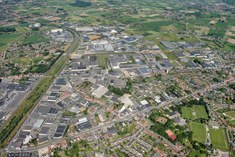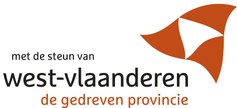Interreg 2 Zeeën - BISEPS
Interreg 2 Zeeën

Description of the project

The purpose of the BISEPS project is to convince clusters of businesses to actually make more use of sustainable energy and to create synergies on energy level between businesses. The BISEPS project combines available knowledge on the renewable energy demand and supply side about barriers, drivers and solutions and will:
- help to eliminate existing barriers (local and international);
- reorganise the supply side on a business cluster level by integrating and tuning available low carbon technologies and surrounding services (financial, organizational, legal,…) into integrated energy packages;
- develop a generic BISEPS-model tool to determine the optimal low carbon technology solutions for business clusters, without needing to conduct time consuming and expensive feasibility studies.
The BISEPS project is open to different target groups:
- demand side: companies, SME’s located in business clusters, real estate owners (end-users of energy);
- supply side: energy providers, grid operators, companies providing energy services (ESCO);
- policy makers: local authorities, business cluster developers and managers, regional development agencies.
Objectives
- to bring the existing theoretical and practical knowledge of low-carbon technologies into practice on an international level by developing a BISEPS-model;
- to reorganise and tune the demand (SME’s) and supply (international players) of renewable energy;
- to test the operational BISEPS-model tool in real life conditions through 5 pilot living labs in cooperation with companies;
- to make the BISEPS-model tool cross border market proof through a guidance tool towards companies.
Role of Ghent University
As co-promotor of the project, Ghent University is responsible for the development of the BISEPS-tool and for the communication and dissemination of the project results.
This project has received funding from the Interreg 2 Seas programme 2014-2020 co-funded by the European Regional Development Fund under subsidy contract No 2S01-067.
Contact
Prof. Lieven Vandevelde
Department of Electrical Energy, Systems and Automation
Phone number: T +32 59 24 27 40 (Campus Oostende), T +32 9 264 34 22 (Technologiepark-Zwijnaarde)
E-mail: Lieven.Vandevelde@UGent.be
